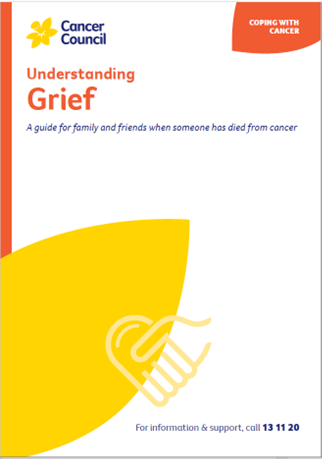- Home
- Cancer Information
- Schools and teachers
- Cancer in the school community
- The bereaved school community
- When a staff member dies
When a staff member dies
When a teacher or other prominent member of the school community dies, there is a far-reaching impact. You and your colleagues will need to deal with your own grief, as well as comfort students who may also be grieving.
If you are grieving, find out about all available employee support services and take time to deal with your own feelings. If you worked closely with the person, you may wish to attend the funeral. The school may organise a memorial service to honour your colleague and to allow staff, parents and students to pay their respects.
Students can take the death of a teacher particularly hard. They will mourn in individual ways. It is okay for students to know that you are sad, too – they rely on adults to model healthy grief. Reassure students that grief is a natural reaction, and that counselling is available. The principal or a counsellor can talk to students about grief and ways to remember their teacher.
Lasting tributes
If the person who has died was well known in the school community, your school might want to establish an ongoing way to honour them.
Options include:
- planting a tree or garden
- placing a memorial plaque somewhere in the school grounds
- establishing an annual award named after the person
- acknowledging anniversaries.
→ READ MORE: Planning a memorial
Podcast: Coping with Grief
Listen to more episodes from our podcast for people affected by cancer
More resources
Claire Tobin, Principal Medical Advisor, Department of Education and Training, VIC; Dr Antoinette Anazodo, Paediatric and Adolescent Oncologist, Sydney Children’s Hospital and Prince of Wales Hospital, Director of The Sydney Youth Cancer Service, and Conjoint Senior Researcher, University of New South Wales, NSW; Lisa Barrow, Clinical Nurse Educator, Children’s Cancer Centre, Royal Children’s Hospital, Melbourne, VIC; Margo Bulic, Psychosocial Support Worker, CanTeen, ACT; Amber Copeland, 13 11 20 Consultant, Cancer Council Queensland; Donna Drew, Clinical Nurse Consultant, Paediatric Oncology/Palliative Care, Kids Cancer Centre, Sydney Children’s Hospital, Randwick, NSW; Allesha Fecondo, Education Consultant, Victorian Paediatric Rehabilitation Service, and Education Liaison, Ronald McDonald Learning Program, Ronald McDonald House Charities Australia, VIC; John Friedsam, General Manager of Divisions, CanTeen Australia, NSW; Pina Hutcheson, President, Catholic Primary Principals’ Association of WA; Cara Irvine, Year 8 Coordinator, Alfred Deakin High School, ACT; Andrew Long, Assistant Director, Policy and Research, Independent Schools Council of Australia, ACT; Dr Alistair Lum, Post-doctoral Research Fellow – Behavioural Sciences Unit, Sydney Children’s Hospital, University of New South Wales, NSW; Kristine Luszczynski, Learning Program Manager, Quality and Standards, Ronald McDonald House Charities Australia, NSW; Anita Neville, National Manager, Ronald McDonald Learning Program, Ronald McDonald House Charities Australia, VIC; NSW Department of Education, NSW; Mandy Roney, Consumer; Shannon Rush, Primary School Program Manager, Camp Quality, SA; Luke Wade, Education and Career Support Consultant, Redkite, QLD.
View the Cancer Council NSW editorial policy.
View all publications or call 13 11 20 for free printed copies.
Need to talk?
Support services
Work and cancer
Information for employees, employers and workplaces dealing with cancer
Need legal and financial assistance?
Practical advice and support after a death from cancer
Cancer information
What is grief?
Common grief reactions, such as sadness, anger, relief and fear
Workplace fact sheet: Death and bereavement
Information for employers when a staff member dies or is bereaved

